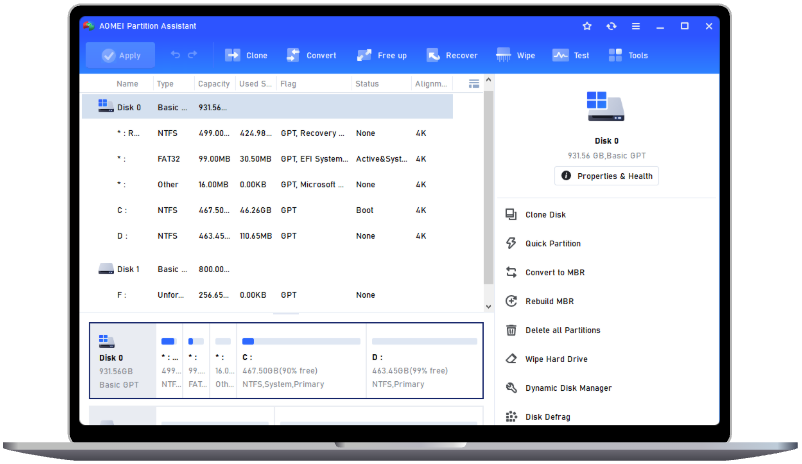4 Reasons Why Everyone Should Use A VPN
Here Are 4 Real Reasons Why Everyone Should Use A VPN. Let's find out what it means.
VPNs or virtual private networks are great for the purpose which they were originally intended for. As a corporate solution used by companies and their employees to expand the office network or connect multiple offices to the same network.
If you’re not a company, VPNs are valuable too, but they aren’t the ultimate solution to internet privacy and security that many online shills would have you believe.
If the CIA, FBI, or NSA really wants to find out who you are, they will check whether your VPNs are on or not.
WPS addressing information, MAC addresses, Wi-Fi or Bluetooth positioning will all give you away if you’re doing crimes. Not to mention your browser is stuffed with 3rd party cookies, E-tags, HTML5 local storage, and single-pixel web beacons to identify and track you online. Before starting a criminal enterprise, you’d better read up on virtual boxes, Tor, and get Tails Linux, but we wouldn’t recommend it.
Finally, you have to ask yourself, are you swapping your trust in the ISP you know for one you don’t? When you aggregate all your traffic with a client and encrypt it with a VPN’s keys you’re now putting way more trust in the VPN provider than you ever were with your ISP.
How A VPN Hides Your IP Address And Encrypts Your Traffic
Click here If you want an in-depth answer to the what is a VPN question. For our purposes, you can think of a VPN provider as a mail forwarder.
The VPN client, which is software that lives on your computer, takes your internet package and wraps it inside another envelope addressed to the VPN server.
Your ISP is unable to see the content of that envelope. They can likely work out that it's the address to a VPN server but that’s about it. Once the envelope arrives at the VPN server it’s opened and remailed to the address which you wrote on the front. The site which you are really trying to visit. The recipient can only see the return address of the VPN server, so the site you are visiting is unable to tell who you are and where you are browsing from.
1 To Watch Geo Blocked Content That’s Not Available in a Country
It should come as no surprise that the main reason everyday people use a VPN is to watch movies, tv shows, sports, and services that aren’t available in their country.
We are stuck between the age of the living room television and the information superhighway and our archaic broadcasting laws haven’t caught up yet. Netflix’s catalog in the US has movies that aren’t available in Canada even though those countries share a border. In a world where we can send information through a fiber optic cable under an ocean in a fraction of a second, this makes no sense.
2 To avoid cease and desist notices
No matter how you personally feel about torrenting, around 5% of traffic on the internet is from BitTorrent and clients like it.
When you’re torrenting everyone can see your public IP address and that’s a problem. Rights Holders monitor who’s downloading what and send cease and desist notices to ISPs for them to forward onto whoever was downloading or uploading the content. They might threaten legal action or try to get you to pay for the content.
A VPN is an easy way to avoid this ever happening.
3. To Hide Activity From ISPs
While using a VPN an ISP is unable to see the websites that are being accessed.
Without a VPN an ISP is able to see the entire URL which will tell them what videos you’re watching, products you're browsing, and practically everything you do online. If it makes you uncomfortable just thinking about it, then a VPN is worth it.
Your ISP can’t see your usernames and passwords over HTTPS because that’s encrypted. It’s not just your ISP you need to worry about either. If this information is being recorded anywhere, and there are now laws in many regions that say it has to be, then you’re trusting that your ISP has taken significant measures to protect it. If it’s hacked and leaked to the internet, well now your browsing history is in the public domain forever.
4. Security on HTTP
90% of the internet uses the HTTPS protocol. Anytime you see a padlock in the URL bar, it means that you’re communicating over HTTPS. The S stands for secure. It’s a very clever protocol that trusts a chain of certificate authorities to all but guarantee that your communication can’t be intercepted.
Your online banking, crypto exchanges, and favorite eCommerce marketplaces are all secured with HTTP, but if you spend time on more questionable sites it’s worth it to double wrap. A VPN encrypts all traffic before it leaves your computer.
The risk here is that if you're entering your username and password on public Wi-Fi over HTTP then anyone sharing that network can intercept that traffic. Hopefully, you’re not recycling your password and using it anywhere important.
In Summary
VPNs aren’t the be-all and end-all of internet security that most advertisements claim them to be.


